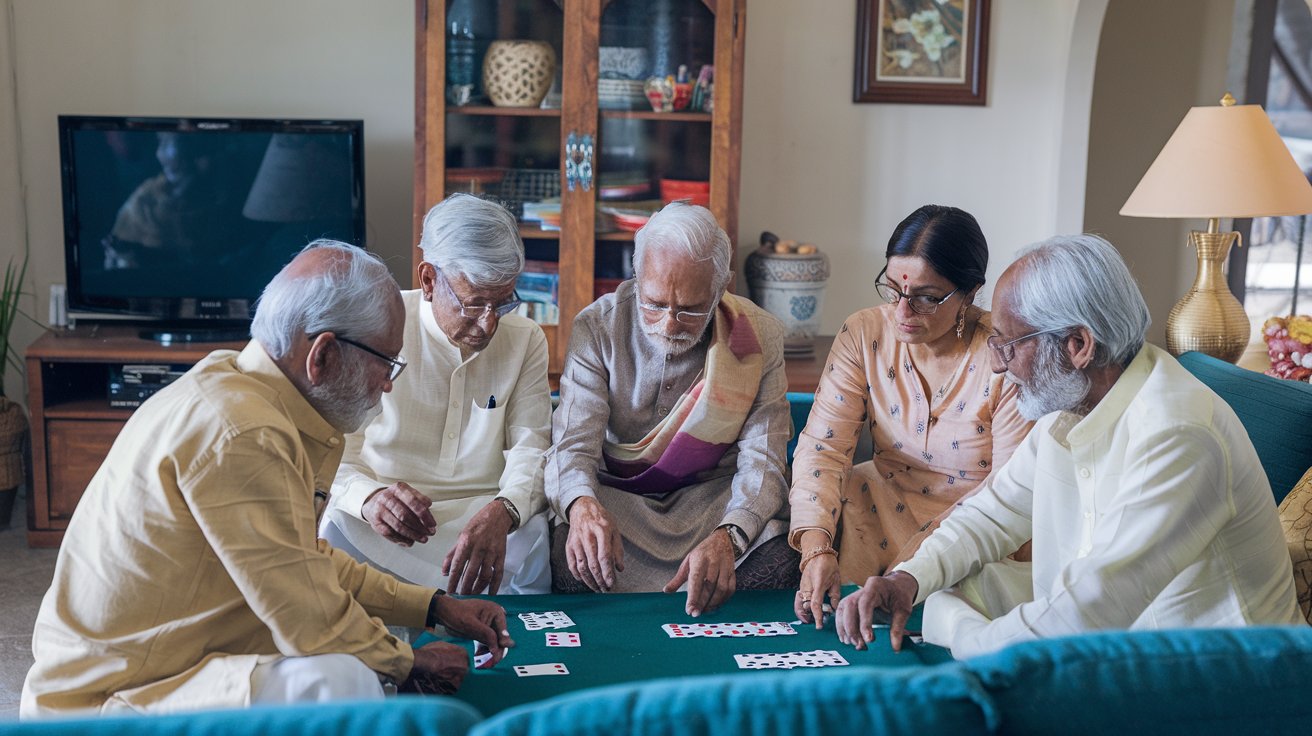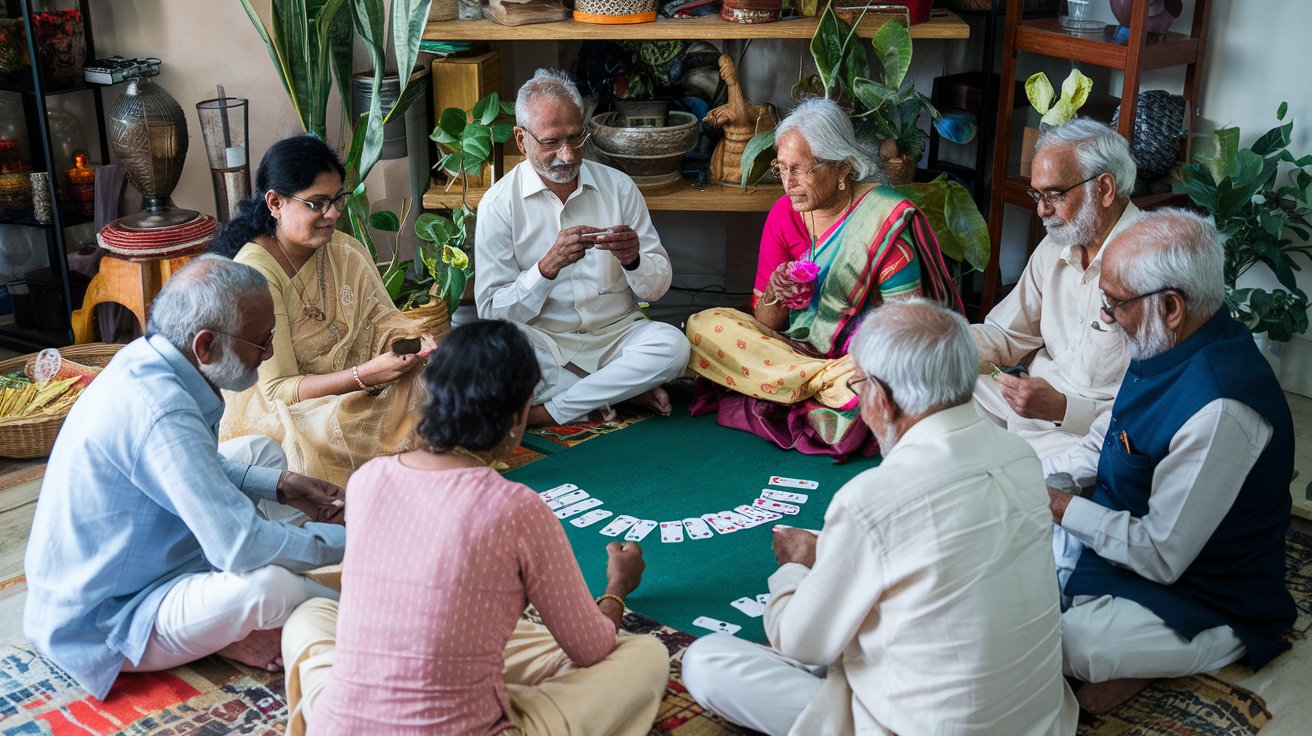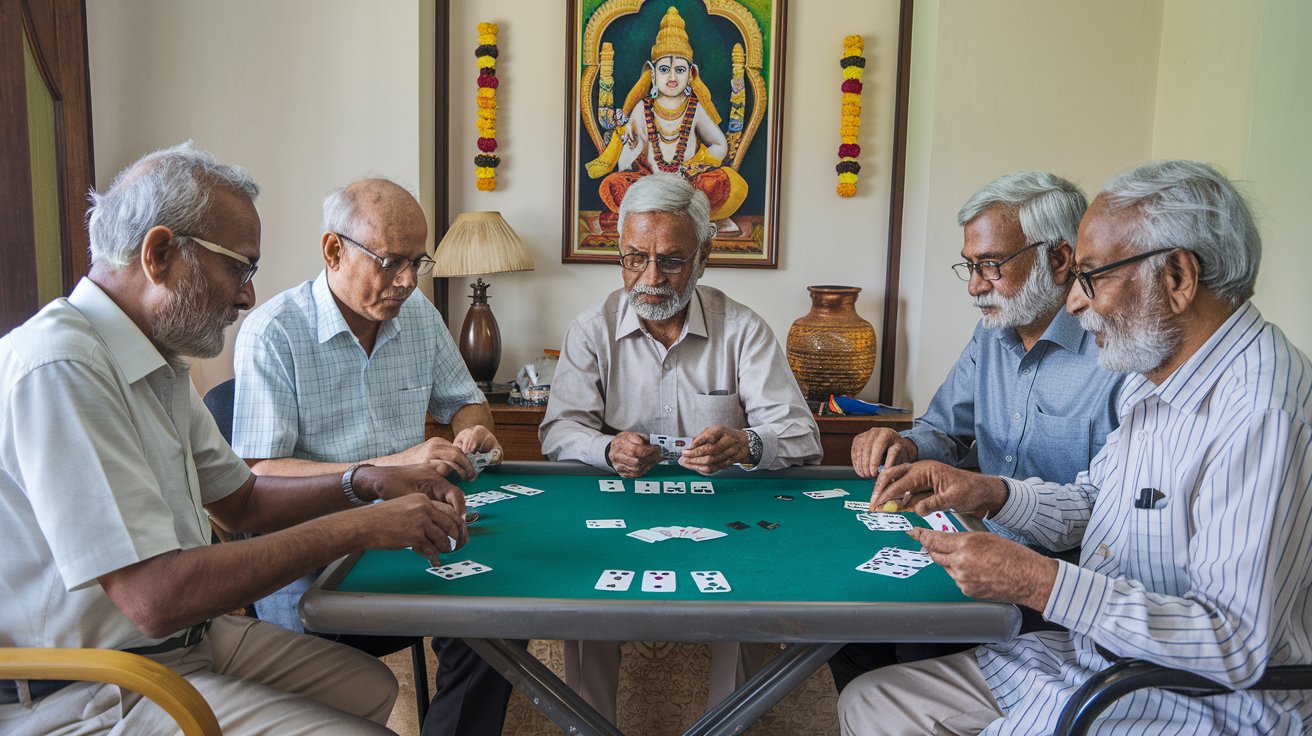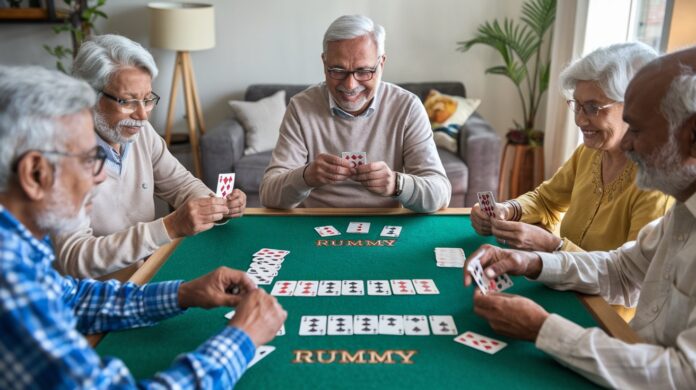Rummy, a classic card game that blends skill, strategy, and a dash of luck, has long held a special place in the hearts of Indian grandparents. From bustling family gatherings to quiet afternoons on the veranda, this timeless game has become a cultural staple across generations. But what is it about rummy that makes it so beloved by Indian grandparents? Is it the nostalgia, the mental stimulation, or the social bonds it fosters? In this blog, we’ll explore the reasons behind rummy’s enduring popularity among India’s older generation, diving into its history, appeal, and role in modern Indian households.
The Cultural Roots of Rummy in India
Rummy’s journey in India is deeply intertwined with the country’s rich tradition of games and social interaction. While its origins can be traced back to Western card games like Conquian, rummy found a unique home in India, evolving into a game that resonates with local customs and values. For Indian grandparents, rummy isn’t just a pastime—it’s a bridge to their past, a reminder of simpler times when families gathered around a table, sharing stories and laughter.
In many Indian households, card games have been a part of festivals like Diwali, where playing cards is considered auspicious. Grandparents often recount tales of late-night rummy sessions during these celebrations, where the clinking of coins and the shuffling of cards created a symphony of joy. This cultural connection has cemented rummy’s status as more than just a game—it’s a tradition passed down through generations.
Why Indian Grandparents Adore Rummy

1. A Perfect Blend of Skill and Entertainment
Unlike games of pure chance, rummy requires a sharp mind and strategic thinking. Indian grandparents love this aspect because it keeps them mentally agile. Arranging cards into sets and sequences demands focus, memory, and quick decision-making—skills that many seniors are eager to maintain as they age. Studies have shown that engaging in mentally stimulating activities like rummy can help improve cognitive function, making it a fun yet beneficial pastime.
For grandparents, rummy is a way to flex their intellectual muscles while enjoying themselves. Whether they’re outsmarting their opponents with a clever discard or patiently waiting for the perfect card, the game offers a sense of accomplishment that’s hard to beat.
2. Nostalgia and Childhood Memories
For many Indian grandparents, rummy evokes memories of their youth. Growing up in an era before smartphones and streaming services, they relied on card games for entertainment. Rummy, with its simple rules and endless possibilities, was a staple in their homes. Playing it today brings back the warmth of those carefree days spent with siblings, cousins, and friends.
Take, for example, 75-year-old Meena Sharma from Delhi, who says, “Rummy reminds me of my childhood in the village. We’d sit under the banyan tree with a deck of cards, and the hours would just fly by.” This nostalgia is a powerful draw, making rummy a comforting link to the past.
3. Strengthening Family Bonds
In a fast-paced world where younger generations are often glued to screens, rummy offers Indian grandparents a chance to connect with their families. The game’s multiplayer nature makes it ideal for group play, bringing together children, grandchildren, and even neighbors for a lively session. Grandparents relish the opportunity to teach their grandkids the tricks of the trade—how to spot a winning hand or bluff their way through a tough round.
These interactions go beyond the game itself. As cards are dealt and strategies unfold, conversations flow naturally. Grandparents share life lessons, family anecdotes, and even a few good-natured jabs, creating memories that last a lifetime. For them, rummy isn’t just about winning—it’s about building relationships.
4. Accessibility and Simplicity
Rummy’s straightforward rules make it easy for anyone to pick up, regardless of age or experience. All you need is a standard deck of 52 cards (or two, for larger groups), and you’re ready to play. This accessibility is a big reason why Indian grandparents love it—no fancy equipment or complicated setups required.
Even as physical mobility may decline with age, rummy remains a game they can enjoy from the comfort of their favorite armchair. Plus, with the rise of online rummy platforms, tech-savvy grandparents can now play with friends or family members across cities, keeping the tradition alive in a digital age.
5. A Social Lifeline
For many Indian grandparents, especially those living alone or in retirement communities, rummy serves as a social lifeline. It’s a reason to invite friends over, share a cup of chai, and catch up on life. The game’s competitive yet friendly nature sparks laughter and camaraderie, helping seniors combat loneliness and stay connected.
In rural areas, you might find groups of grandparents gathered under a tree or in a community hall, their animated discussions punctuated by the slap of cards on the table. In urban settings, rummy clubs and online groups have sprung up, giving seniors a sense of belonging and purpose.
The Evolution of Rummy: From Table to Screen

While traditional rummy played with physical cards remains a favorite, the game has evolved to meet the demands of the modern world. Online rummy platforms have gained traction in India, offering grandparents a new way to enjoy their beloved game. These platforms replicate the excitement of a live game, complete with vibrant graphics and real-time opponents.
For tech-savvy grandparents, online rummy is a revelation. They can play anytime, anywhere, without needing to gather a group. Features like tutorials and practice modes also make it easy for them to brush up on their skills or learn new variations. However, many still prefer the tactile feel of cards in their hands, reserving online play for when physical gatherings aren’t possible.
Health Benefits of Rummy for Indian Grandparents
Beyond its entertainment value, rummy offers a host of health benefits that make it particularly appealing to seniors:
- Cognitive Boost: As mentioned earlier, rummy sharpens memory, concentration, and problem-solving skills, helping grandparents stay mentally active.
- Stress Relief: The game’s immersive nature provides a welcome distraction from daily worries, promoting relaxation and emotional well-being.
- Social Interaction: Regular play with family or friends reduces feelings of isolation, which is crucial for mental health in older adults.
- Hand-Eye Coordination: Shuffling, dealing, and arranging cards keeps fine motor skills intact, a small but significant perk for aging hands.
These benefits align perfectly with the needs of Indian grandparents, making rummy a holistic activity that nurtures both mind and soul.
Popular Rummy Variations Loved by Indian Grandparents

Rummy isn’t a one-size-fits-all game—its many variations keep it fresh and exciting. Here are some versions that Indian grandparents particularly enjoy:
1. Indian Rummy
The most popular variant in India, Indian Rummy is played with two decks and jokers. Grandparents love its fast pace and the challenge of forming two sequences, one of which must be pure (without a joker).
2. Points Rummy
Quick and straightforward, Points Rummy is perfect for short sessions. Each card carries a point value, and the winner takes the pot—a format that appeals to grandparents who enjoy a bit of friendly wagering.
3. Gin Rummy
Though less common, some grandparents who learned Gin Rummy from British or American influences enjoy its simpler, two-player setup. It’s a quieter game, ideal for intimate matches.
4. Marriage Rummy
A Nepali twist on the classic, Marriage Rummy is a hit among grandparents in North India. With its unique scoring system and emphasis on jokers, it adds an extra layer of fun.
Each variation brings its own flavor, ensuring there’s a rummy style for every grandparent’s taste.
Rummy in Indian Pop Culture
Rummy’s influence extends beyond the card table into Indian films, literature, and folklore. Bollywood classics like Shree 420 and Teen Patti have immortalized card games as symbols of wit and camaraderie, resonating with grandparents who grew up watching these movies. In rural storytelling traditions, tales of clever rummy players outwitting their rivals are common, adding a layer of mystique to the game.
This cultural presence reinforces rummy’s appeal, making it a shared experience that transcends generations. For grandparents, it’s not just a game—it’s part of their identity.
Tips for Grandchildren to Join the Fun
If you’re looking to bond with your grandparents over rummy, here are some tips to get started:
- Learn the Basics: Ask them to teach you their favorite version—most will jump at the chance to share their expertise.
- Be Patient: They might take longer to make moves, but that’s part of the charm. Use the time to chat and connect.
- Add a Twist: Suggest a small prize (like their favorite snack) to spice things up.
- Go Digital: Introduce them to online rummy apps for a modern twist, but don’t push if they prefer the traditional way.
Playing rummy with your grandparents isn’t just about the game—it’s about creating moments you’ll both cherish.
Conclusion: Rummy’s Timeless Appeal
Rummy’s popularity among Indian grandparents is no accident. It’s a game that combines mental challenge, social connection, and a touch of nostalgia, perfectly suited to their needs and desires. Whether they’re reminiscing about the past, teaching their grandkids a trick or two, or simply enjoying a quiet evening with friends, rummy offers something special—a way to stay engaged, entertained, and connected.
As India continues to modernize, rummy remains a constant, adapting to new platforms while retaining its old-world charm. For Indian grandparents, it’s more than a card game—it’s a legacy of love, laughter, and togetherness. So, the next time you visit your grandparents, why not shuffle a deck and join them for a round? You might just discover why rummy holds such a cherished place in their hearts.

Zareb Saleh is a journalist at Gulf Today and a ghostwriter for Gameoholic, specializing in gaming, technology, and digital culture. With a keen eye for industry trends, he delivers insightful stories that engage and inform readers.




